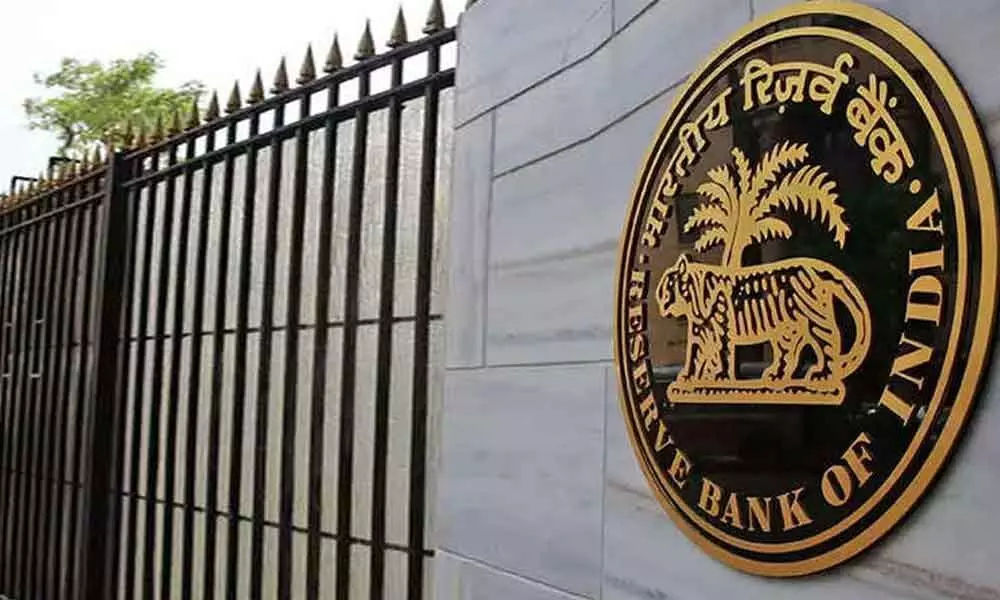AIBDA wants RBI to protect interest rate for depositors
image for illustrative purpose

Mumbai, May 22 All India Bank Depositors' Association (AIBDA) wants RBI to protect interest rate for depositors.
The RBI, as usual, invited the All India Bank Depositors' Association (AIBDA), along with trade bodies for a pre-policy consultation on 14 May. Participating in the discussion, the AIBDA highlighted five critical issues.
First among them pertains to protection of interest rate for depositors.
Since February 7, 2019, the repo rate has been reduced by 250 basis points and has remained unchanged at 4 per cent since May 5, 2020. Moreover, the RBI has made a liquidity provision of over Rs 13 trillion in 2020-21. Flush with liquidity amidst sluggish demand for credit, commercial banks reduced term deposit rates nearly by 200 basis points. Inflation remaining elevated, the real interest rate for depositors turned negative throughout FY21. The worst suffers were small income earners and senior citizens.
"While a pause in repo rate is desirable to support growth at this point in time, too much liquidity in the market works adversely against the depositors without a significant increase in bank credit. As depositors are major stakeholders and risk bearers in the financial system, their interests should not be ignored altogether. This may increase the wedge between savings and investment in the economy going forward and hamper growth in the long run," says DG Kale, president, AIBDA.
On reduction of interest rate margin, Kale says that the banks may take a cue from Government's decision not to cut the interest rates on Small Savings Schemes. In a deregulated environment, it may not be possible for the RBI to reregulate deposit rates. But the entire burden of cutting interest costs should not fall on depositors. Banks may be advised to reduce their operating cost and prune the net interest margin to avert a drastic cut in the deposit rates, he said.
Joining the debate, Dr Amitha Sehgal, Hon Secretary, AIBDDA said, "We in the AIBDA would like to reiterate that the one-year real deposit rate should be at least 2 per cent for saving-investment equilibrium to be maintained at a reasonably high level."
On guidelines on Regulation of Payment Aggregators and Payment Gateways, she said that the current market practice of charging disproportionately high surcharges/convenience fees by the airline industry and even a few hospitals and other service institutions has put consumers at a disadvantage.
The AIBDA would like to suggest that the RBI should re-examine the existing guidelines and rules for surcharging/convenience fees levied by merchants. The revised guidelines may be enforced by imposing an appropriate penalty in case of violation or disproportionate surcharging/convenience fees imposed on the customers, she added.
AIBDA has also demanded for rationalisation of charges imposed on the use of debit cards in case of insufficient funds in the account.
Over years, banks are imposing a fee every time there is a transaction decline at an ATM or point of sale (POS) due to insufficient balance in the account. These charges are predominantly of the order of Rs 25 + GST. Declined POS/ATM transactions due to insufficient balances are nowhere at par with cheque/ECS returns. It does not involve any intent of systemic inconvenience or distrust to a third party.
"We would like to mention that NPCI does not consider it as a transaction and there is no cost imposed by NPCI/acquirer bank onto the card-issuing bank. Hence, no charge should be imposed by the card-issuing bank in case of a failure of the transaction at ATM/POS ," the AIBFDA statement said.
Moreover, AIBDA has demanded that the KYC-related confusion and chaos needs to be streamlined and handled in a customer-centric manner. At present, banks insist on checking the Aadhaar Card/Pan Card of customers. It has increasingly become a mechanical exercise of Know Your Documents (KYD) rather than KYC.
AePS platform is available for eKYC and RBI may nudge banks, fintech, and NPCI to develop Apps that allow for an online KYC process. Banking Correspondents may also play a proactive role in completing the KYC compliance process.
Moreover, because of COVID and lockdown, many Senior Citizens are finding it very tough to update their KYC by visiting the Bank Branches.
AIBDA's demands_
- · We request RBI to initiate the use of technology to verify these documents.
- · The RBI may consider a moratorium of one year for updating their records with the bank.
- · For a very senior citizen, above the age of 75 years, the nearest branch of the bank may send someone to verify documents at his residence at the bank's cost.

